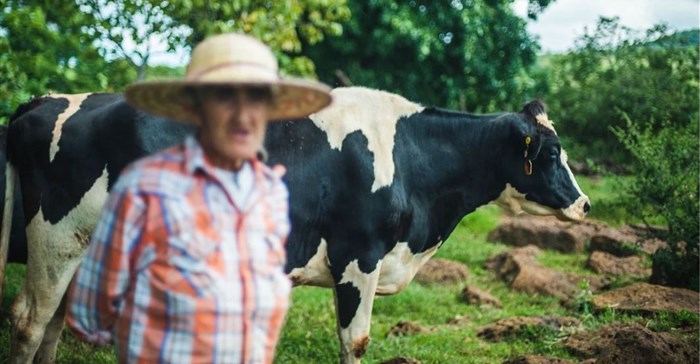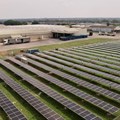Food and beverage giant Danone has committed to slashing methane emissions from its fresh milk supply chain by 30% by 2030. The food giant expects to remove 1.2 million tons of carbon dioxide equivalent of methane emissions by 2030.

Source: Supplied
This ambition builds on the progress Danone has been making in recent years, already reducing its methane emissions by 14% between 2018 to 2020.
Danone, one of the world’s largest dairy producers, is the first food company to set a methane reduction target and align with the ambition of the Global Methane Pledge launched at COP26. The company will report on its methane emissions, as part of its extra financial disclosure.
A reduction in methane emissions will have immediate benefits for the climate that reductions in carbon dioxide cannot achieve on their own, according to the IPCC. Dairy production from cattle makes up an estimated 8% of total human-caused methane emissions, as part of agriculture and livestock activities which represent approximately 40% of global methane emissions.
Transition to regenerative dairy
Danone said it will play its role in reducing methane emissions by focusing on working with farmers to implement regenerative dairy practices and develop innovative solutions. Furthermore, the company said it would advocate and engage with governments to improve methane policies, data and reporting as well as funding for research and to support farmers transitioning to regenerative dairy practices.
In addition to this, Danone said it would collaborate and partner with peers, governments and the Environmental Defense Fund to scale innovation, reporting and advance financing models.
Danone works directly with 58,000 dairy farmers across 20 countries and has supported projects for dairy farms in 14 countries, through its regenerative agriculture programme, initiatives such as Farming for Generations and with Danone Ecosystem.
While these projects are holistic in nature, with benefits on biodiversity, soil quality and reduction of the use of chemicals in farming, the company noted that reduction of GHG emissions - including methane - has been a priority.
"We will continue to accelerate our efforts across geographies and across diverse farming systems, working hand-in-hand with dairy farmer partners. In 2023, we will launch four new initiatives for methane reduction in Africa, Europe and the United States," the company said in a statement.
Reducing impact on climate
Antoine de Saint-Affrique, chief executive officer of Danone, commented: "Dairy products are an affordable source of nutrition for many people, at the core of our mission to bring health through food. As one of the largest dairy companies, we take the challenge of both producing more [to feed a growing population] and greatly reducing emissions and impact on climate.
"Our ambitious plan to reduce methane emissions – in line with Global Methane Pledges from 150 countries – is a commitment to build regenerative dairy. This step change requires a collective effort. Working with farmers, partners and governments, we have the power and duty to build farming models that benefit the climate and society, taking a step forward to tackling global warming together."















